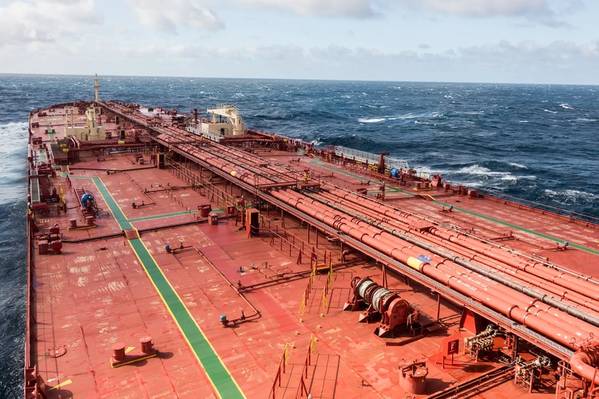
Russia's oil exports from its western ports in July are expected to decline from June amid higher refinery runs and Moscow's pledge to stick to OPEC+ output cuts, two traders said.
Russian oil exports from Baltic ports Primorsk and Ust-Luga as well as the Black Sea port of Novorossiisk, which mostly load the Urals oil grade, tend to be volatile as companies adjust exports depending on refinery runs and available supply.
Offline refining capacity in July is seen declining to 1.8 million metric tons, according to Reuters calculations based on data from industry sources.
Lower offline refining capacity means higher refinery runs and therefore less availability of crude oil for export.
Russia also pledged to stick to its output quota in line with the OPEC+ agreement as well as to compensate for admitted April-May overproduction. This leaves Russia with limited resources to raise exports.
In June western oil exports were planned at about 2 million barrels per day (bpd), close to May levels.
Meanwhile, Russian offline primary refining capacity was revised up by 114% from the previous plan to 4.1 million tons for June, allowing for ample crude oil exports. Actual oil loadings from western ports in June could be even higher than the plan, traders said.
The revision to refining capacity was because of continued outages at the Tuapse and Komsomoslk refineries of Rosneft oil company, traders said and Reuters calculations show.
"Main question is if some refineries are back operational in July. If at least one is back online, it may have a visible effect on exports," one of the traders said.
If the refineries remain offline next month, idle refinery capacity could rise to 3.3 million tons but will still be below the June level, traders said.
Another trader added that any new drone attack on Russian oil refineries could change the actual oil exports level.
(Reporting by Reuters; Editing by David Goodman)



